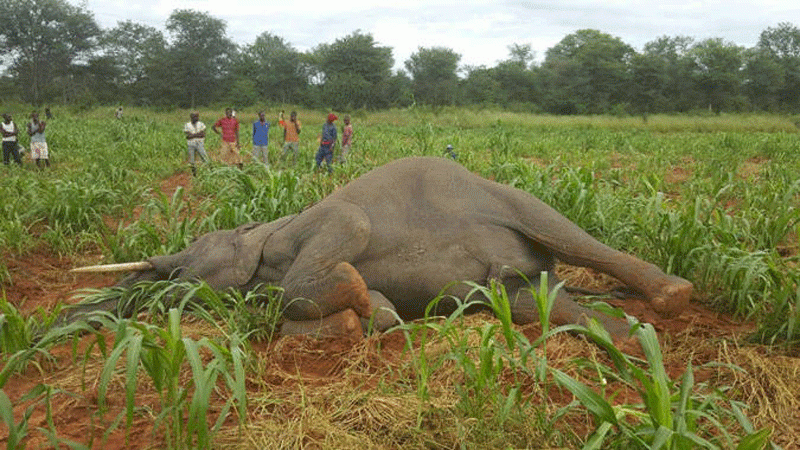
NUMEROUS articles have in the past been written concerning the much talked about human wildlife conflict (HWC) currently affecting Zimbabwe and most neighbouring countries. HWC refers to negative interactions between humans and wild animals, with undesirable consequences both for people and their resources and wildlife and their habitats on the other hand.
Various mitigatory measures have been implemented as part of efforts to bridge the gap as both lives are endangered in the survival process, hence the need to come up with the legendary win-win situation.
However, Yours Truly will briefly look at a few neighbouring countries and briefly discuss how they are handling such issues in trying to live in harmony with various mammals.
Most of the focus will be those nations that are part of the Kavango — Zambezi Transfrontier Conservation Area (KAZA) whose main thrust is conservation and promotion of the flora and fauna. It comprises countries such as Angola, Botswana, Namibia, Zambia and Zimbabwe and dubbed "tourism without borders".
Luengue-Luiana National Park is among Angola's largest animal kingdom where various stakeholders have in the past joined hands in trying to tackle human-wildlife conflict. Some of the threats encountered include climate change vulnerability, environmental degradation, land encroachment and rampant poaching among other related directed costs.
The national park is also part and parcel of Kaza, where various programmes are also implemented to minimise hazards associated with those living alongside problematic wild animals.
In Namibia there is Etôsha National Park which is considered to be unique among a host of game reserves in Africa. The park's main feature is a salt pan whose largeness could be seen from space.
The park is considered the most accessible game reserve in both Namibia and southern Africa in general.
- Gwanda residents apprehend robbers
- Unpacking environmental laws for real estate in Zimbabwe
- Veld fire management strategies for 2022
- Stop harassing media for reporting truth
Keep Reading
According to its website, the park is free of malaria, accessible through various types of vehicles, an array of game viewing decks among others.
However, the major challenge is human-wildlife conflict especially with iconic species such as elephants and lions where the end result might be loss of livestock to predators, crop damage from elephants, as well as human injury or loss of life.
Such animals usually require huge tracts of land to meet their social and biological needs. So, any form of loss is universal and has to be redressed to eliminate serious threats from both human beings and animals.
The government of Namibia has in the past embarked on communal conservancy programmes as it tries to reduce HWC by empowering communities on wildlife management to generate income for conservancy members.
Amounts earned from tourism and conservancy hunts are usually used to meet costs as well as investment in local developmental projects while employment and training opportunities are created in the process.
Even though the current level of returns and benefits do not usually cover losses generated from human-wildlife conflict, any amount raised goes a long way in alleviating some problematic issues.
The Namibian government through relevant ministries embarked on a National Policy on Human-Wildlife Conflict Policy Management (2018-2027) which seeks among other things, recognition of those people that are living alongside wild animals.
The national policy allows for management of human-wildlife conflict in a way that recognises the rights and developmental needs of local communities. Promotion of biodiversity conservation, self reliance and ensuring quick decision making based on best available information that is amenable to both parties.
The list is endless.
Yours Truly is eagerly waiting for the implementation of the much touted Human Wildlife Conflict Policy Fund.
Is Campfire still in existence? Anyone care to assist. Till we meet again in the next column.
*Comments always welcome at: [email protected] or X @DubeBurzil







